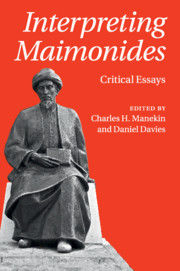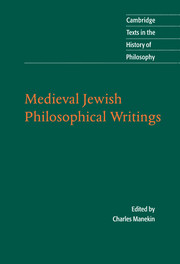O simple ones, understand shrewdness.
– Prov. 8:5I think that such shrewdness is perfected through studying the art of logic.…For [this art] directs the intellect towards the ways of [scientific] endeavor and speculation.
– Gersonides, Commentary on Prov. 8:5“Logic,” to paraphrase the medievals, is an ambiguous term. Broadly speaking, it refers to the study, construction, and appraisal of argument, and in this sense it is similar to “reasoning.” More specifically, “logic” refers to a body of doctrines stemming from the Greek logical tradition, and, even more specifically, to those doctrines found in the nine books of the medieval Organon (Porphyry's Isagoge; and Aristotle's Categories, De interpretatione, Prior Analytics, Posterior Analytics, Topics, Sophistical Refutations, Rhetoric, and Poetics).
A comprehensive survey of the place of logic in medieval Jewish intellectual life, in the broad sense of the term, would require nothing less than an analysis of the varieties of reasoning in the various disciplines studied by Jews, nonphilosophical as well as philosophical. Even the less ambitious task of tracing the influence of the Greek logic on medieval Jewish philosophy would call for a survey of the entire literature, because what philosophical work could be excluded? The present essay has more modest aims: first and foremost, to present a comprehensive survey of Jewish writings on logic in the Middle Ages; then, to make some general observations about the study of logic among medieval Jews; and, as an afterword, to sketch how some Jewish intellectuals applied the doctrines of logic to the fields of biblical exegesis and rabbinic jurisprudence.

